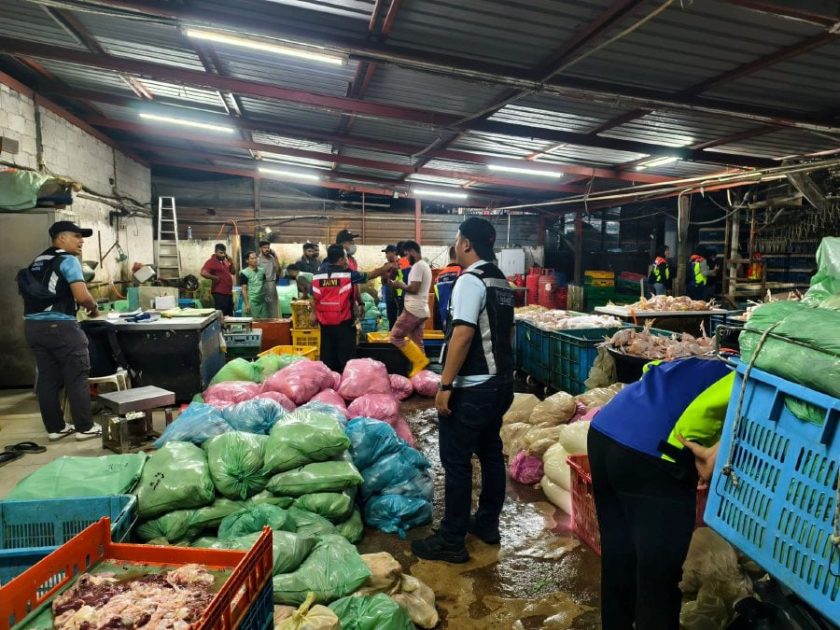Malaysia is reinforcing its commitment to uphold stringent hygiene standards and safeguard public health across the poultry industry, highlighted by two recent high-profile enforcement actions in Melaka and Kuala Lumpur.
Poultry farm shut down
In Melaka, state authorities ordered the immediate closure of a poultry farm in Simpang Bekoh after repeated complaints over foul odors and fly infestations. Despite multiple fines, the operator failed to improve its waste management practices, prompting intervention by the Melaka Department of Veterinary Services.
The farm, housing between 70,000 and 80,000 chickens, was severely understaffed, with only 12 workers managing 16 coops. The lack of manpower led to poor sanitation and compromised biosecurity. The facility will only reopen after fulfilling five strict conditions, including improved hygiene and restored confidence among nearby residents.
Raid on illegal slaughterhouses
In Cheras, Kuala Lumpur City Hall (DBKL) and the Federal Territories Islamic Religious Department, conducted a targeted raid on seven illegal poultry slaughterhouses. The inspection uncovered serious violations: chickens soaked in bloodied water, lack of halal certification, and untrained, mostly undocumented, workers handling food.
Four facilities were immediately shut down, with multiple fines issued for offenses ranging from unlicensed operations to environmental contamination via improper wastewater disposal.
These back-to-back enforcement actions reveal a decisive stance by Malaysian authorities against lapses in hygiene, animal welfare, and food safety. They underscore the coordinated efforts of the country’s agencies in balancing public health, halal compliance, and sustainable livestock production.
These actions reflect a broader effort to clean up the poultry supply chain—from coop to consumer—by enforcing licensing, waste management, and certified worker training.
Preventative measures
With urban populations rising and the poultry sector expanding, these interventions aim to correct and prevent systemic failures. Malaysia’s message is clear: farms and slaughterhouses that ignore hygiene, regulatory compliance, or community wellbeing will face immediate suspension.
This renewed enforcement drive affirms Malaysia’s evolving role as a regional leader in safe, ethical, and accountable livestock practices—an essential pillar for public trust in a halal and health-conscious food economy.

